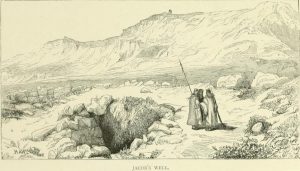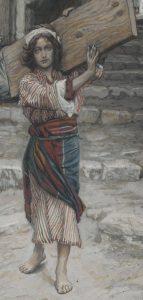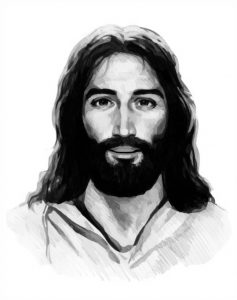 The Book of Truth 193:1.1-3
The Book of Truth 193:1.1-3
Final Appearances and Ascension
1. The Appearance at Sychar
193:1.1
About four o’clock on Sabbath afternoon, 13 May, the Master appeared to Nalda and about seventy-five Samaritan believers near Jacob’s well, at Sychar. The believers were in the habit of meeting at this place, near where Yeshua had spoken to Nalda concerning the water of life. On this day, just as they had finished their discussions of the reported resurrection, Yeshua suddenly appeared before them, saying:
193:1.2
“Peace be upon you. You rejoice to know that I am the resurrection and the life, but this will avail you nothing unless you are firstborn of the eternal spirit, thereby coming to possess, by faith, the gift of eternal life. If you are the faith sons of my Father, you shall never die; you shall not perish. The gospel of the kingdom has taught you that all men are the sons of God. And this good news concerning the love of the heavenly Father for his children on earth must be carried to all the world. The time has come when you worship God neither on Gerizim nor at Jerusalem, but where you are, as you are, in spirit and in truth. It is your faith that saves your souls. Salvation is the gift of God to all who believe they are his sons. But be not deceived; while salvation is the free gift of God and is bestowed upon all who accept it by faith, there follows the experience of bearing the fruits of this spirit life as it is lived in the flesh. The acceptance of the doctrine of the fatherhood of God implies that you also freely accept the associated truth of the brotherhood of man. And if man is your brother, he is even more than your neighbour, whom the Father requires you to love as yourself. Your brother, being of your own family, you will not only love with a family affection, but you will also serve as you would serve yourself. And you will thus love and serve your brother because you, being my brethren, have been thus loved and served by me. Go, then, into all the world telling this good news to all creatures of every race, tribe, and nation. My spirit shall go before you, and I will be with you always.”
193:1.3
These Samaritans were greatly astonished at this appearance of the Master, and they hastened off to the nearby towns and villages, where they published abroad the news that they had seen Yeshua, and that he had talked to them. And this was the seventeenth morontia appearance of the Master.

 The Book of Truth 193:1.1-3
The Book of Truth 193:1.1-3 124:1.11
124:1.11 The Book of Truth 154:1.1-3
The Book of Truth 154:1.1-3